In a recent incident in Wenzhou, China, a man experienced abdominal pain, diarrhea, and a high fever after consuming refrigerated watermelon. Upon visiting the hospital, the doctor diagnosed him with acute gastroenteritis, with the watermelon being the likely culprit.
But are watermelons left overnight truly dangerous? In reality, there have been numerous similar cases where individuals had to be hospitalized after consuming watermelon.
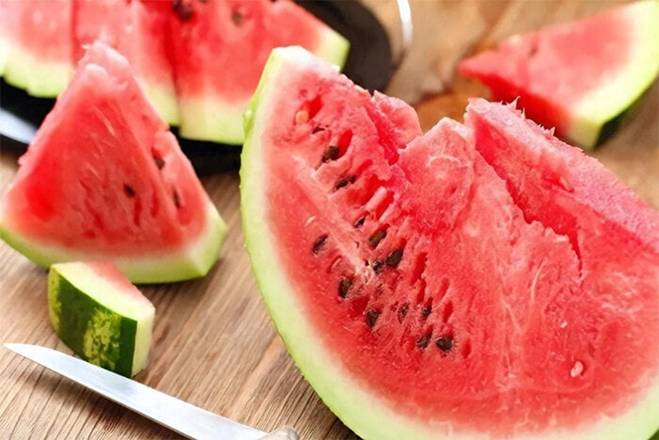
Watermelons can become contaminated if left overnight. (Image source: Toutitao)
In late July 2023, a family in Jilin, China, ate half a watermelon from their refrigerator. They noticed a bitter taste and subsequently experienced nausea, leading them to seek medical attention. The doctor diagnosed them with gastritis caused by food poisoning from the overnight watermelon.
Back in 2002, a family in Xi’an also required hospitalization due to consuming refrigerated watermelon.
China Central Television (CCTV) conducted experiments and made a startling discovery about the bacterial content in watermelons left overnight.
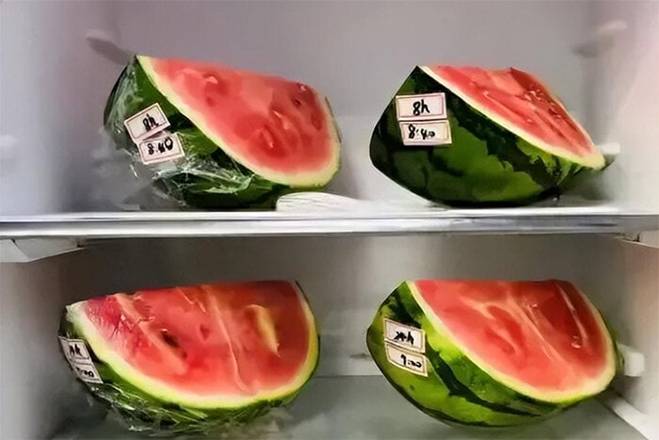
CCTV’s experiment. (Image source: Toutitao)
To verify the bacterial content in overnight watermelons, CCTV designed an experiment with four groups. Group A purchased pre-cut watermelon from a vendor, cut it in half, wrapped one half in plastic wrap, and refrigerated it.
Group B bought a half watermelon, ate some with a spoon, wrapped it, and placed it in the fridge.
Group C used a regular cutting board and knife, washed them, cut the watermelon, wrapped it, and refrigerated it. Group D utilized a dedicated cutting board and knife for fruits and vegetables, ensuring they were clean before cutting the watermelon, wrapping it, and placing it in the fridge.
Additionally, an intact watermelon was purchased to confirm that it was bacteria-free.
After 18 to 24 hours in the refrigerator, the watermelons were analyzed. Group A’s watermelon had 160 bacteria per 25 grams, Group B showed 1,600 bacteria, Group C had a staggering 8,400 bacteria, while Group D had only 45 bacteria per 25 grams.
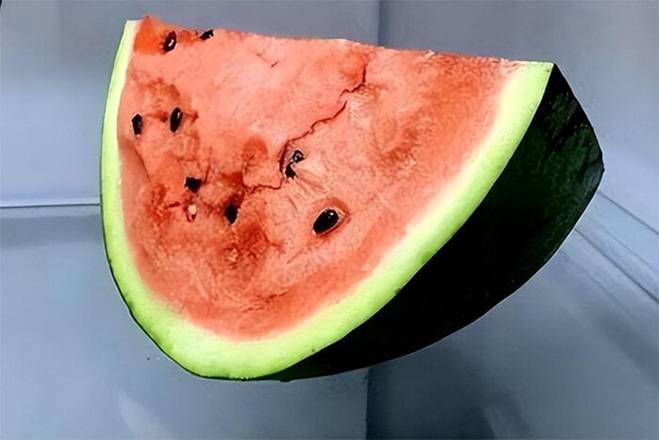
Improperly stored watermelons can be harmful to your health. (Image source: Toutitao)
These results indicate that various factors, such as air exposure, knives, and oral bacteria, can influence the bacterial content in watermelons.
Pre-cut watermelons from fruit stands may have been exposed to air for an extended period, accumulating bacteria on their surfaces. Leaving them unrefrigerated further promotes bacterial growth. Group A’s watermelon, which was not immediately consumed and was exposed to air before refrigeration, exhibited a slightly higher bacterial count.
Regarding Group B, our mouths harbor a significant number of bacteria. When we eat watermelon with a spoon, oral bacteria are transferred to the spoon and then to the watermelon. Refrigerating partially eaten watermelon in this manner will undoubtedly result in higher bacterial levels.
As for Group C, regular cutting boards and knives used for meat preparation can retain high levels of bacteria if not thoroughly cleaned and disinfected, contributing to the substantial bacterial count in this group.
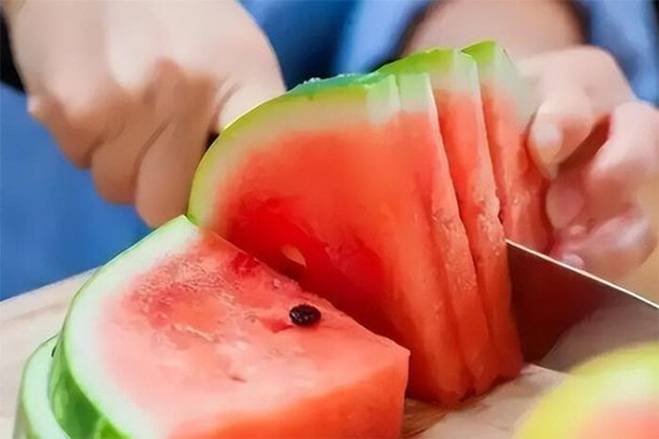
Watermelons can be contaminated by cutting tools. (Image source: Toutitao)
Group D utilized dedicated cutting tools for fruits and vegetables, ensuring they were clean. However, the knife used for cutting and the plastic wrap also introduced a certain level of bacteria.
Consuming overnight watermelon introduces bacteria into our bodies, and the quantity depends on how we purchase, handle, and store it. Once in the refrigerator, watermelons can further accumulate bacteria such as salmonella, shigella, and listeria. As watermelons contain fructose, glucose, and other nutrients, they provide an ideal environment for bacterial growth.
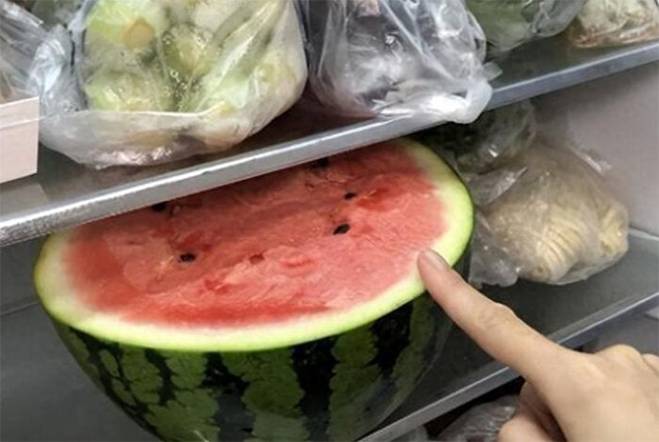
Storing watermelons like this is extremely unhygienic. (Image source: Toutitao)
The health risks associated with overnight watermelons are real. So, how should we properly store watermelons? Here are some suggestions:
– Clean your knives and cutting boards thoroughly. Ideally, use separate tools specifically for fruits and vegetables.
– Avoid consuming watermelons that have been left at room temperature for more than four hours.
– Immediately after cutting a watermelon, wrap it in plastic and refrigerate it.
– Store watermelons in the designated fruit compartment in your refrigerator to prevent cross-contamination with other foods.
– Before consuming refrigerated watermelon, it is advisable to cut off a thin layer from its surface.
Watermelons stored in the refrigerator for extended periods may harbor dangerous bacteria, and even removing the outer layer may not ensure safety.
Source: VTC News
“Two Frugal Vegetables That Taste Great but Feed Cancer Cells: A Tasty Treat with a Deadly Secret”
“It’s common for people to leave cooked vegetables out overnight and reheat them the next day. However, what they don’t realize is that this simple habit could be fueling the growth of cancer cells. This is because certain compounds in vegetables, when cooked and then left out, create an ideal environment for these cells to thrive. It’s crucial to be aware of these potential dangers and take the necessary precautions to protect your health.”






































